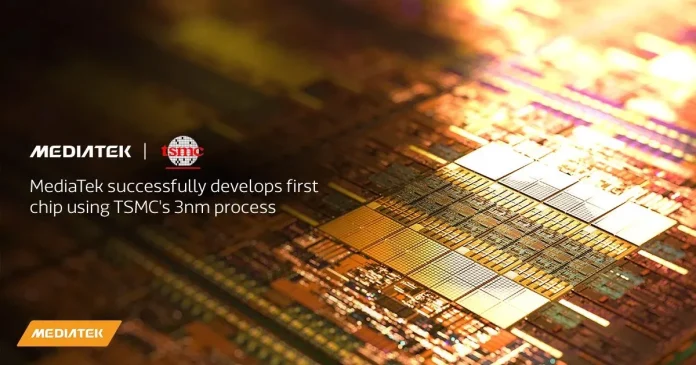In a game-changing announcement, MediaTek, the renowned tech company from Taiwan, has unveiled a groundbreaking achievement in the world of smartphone chipsets. MediaTek proudly declares that it has successfully engineered a cutting-edge smartphone chipset utilizing the advanced 3nm fabrication process provided by TSMC. This historic revelation firmly establishes MediaTek as the world’s first company to introduce a 3nm smartphone chipset, marking a significant leap in semiconductor technology.
While the specific details about the name and specifications of this remarkable chipset remain shrouded in secrecy, MediaTek has disclosed that mass production is set to commence early next year. This eagerly anticipated development paves the way for the potential integration of MediaTek’s 3nm chipset into flagship smartphones and tablets, with expectations of these devices hitting the market in the latter half of 2024.
According to MediaTek, the chipset developed using TSMC’s cutting-edge 3nm process technology promises an astounding 18% boost in performance while maintaining power consumption levels, offering an impressive 32% reduction compared to its 5nm counterparts.
However, while MediaTek may have been the first to publicly announce its 3nm chipset, Apple is widely anticipated to be the pioneer in bringing this cutting-edge technology into the hands of consumers. The upcoming iPhone 15 Pro and Pro Max are slated to feature Apple’s A17 Bionic chipset, which has already been confirmed to leverage TSMC’s 3nm process technology.
Apple’s imminent unveiling of the iPhone 15 Series during the “Wonderlust” event on September 12, 2023, positions them at the forefront of this technological advancement, providing consumers with early access to the benefits of the 3nm chipset. In contrast, MediaTek’s offering is expected to reach the market in the following year.
It’s worth noting that Qualcomm and Samsung are also in the race to develop their own 3nm chipsets, although details regarding their progress remain somewhat limited. In recent developments, Qualcomm has faced challenges in securing TSMC’s capacity for their 3nm chipsets, raising further questions about the competitive landscape in this rapidly evolving sector.

